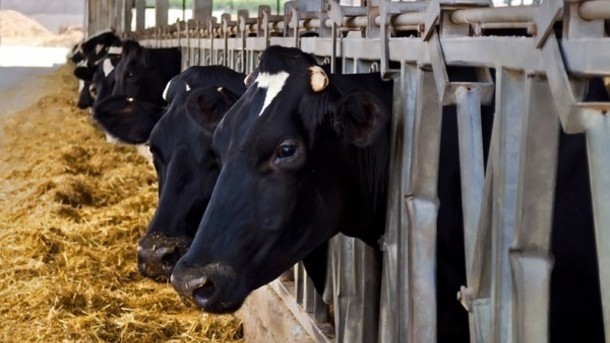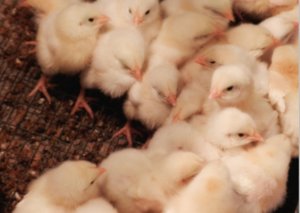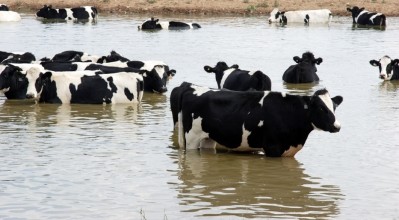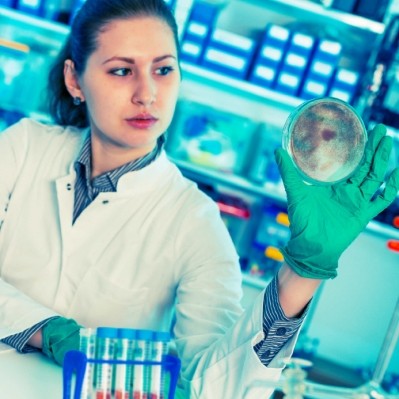Antioxidants hold promise for ruminant productivity but mode of action not fully understood: researcher

"Given how complex the numerous interactions are between antioxidants and body systems, a thorough analysis of antioxidant and animal interactions is necessary to achieve a deeper understanding of the effects of such supplementation of ruminant diets," said Dr Pietro Celi, senior lecturer in ruminant production and health in the faculty of veterinary science at the University of Sydney.
The mechanisms by which antioxidants in feed benefit ruminant metabolism and health is a subject attracting international research interest, prompting Celi and his colleagues to publish a review of the literature on the topic on Feedipedia this month.
Animal metabolism and health
In an interview with FeedNavigator, he said studies show supplementation of ruminant diets with selenium and vitamin E reduces heat induced oxidative stress (OS) but there are also compelling signs the functionality of the animal is enhanced in a raft of other ways.
“There are strong indications dietary vitamin E and Se not only act as antioxidants, but also influence animal metabolism and health.
If we can manipulate them effectively, we will get more efficient and productive livestock and also will be able to design strategic interventions with the aim of optimizing production with less, which will help meet the growing demand for precision in feeding,” he said.
He said, up until recently, researchers had been focused on the effect of feed antioxidants in ruminants in terms of health and disease endpoints such as the reduction of mastitis.
“Now animal scientists are taking more of a holistic approach, training their lenses on the use of antioxidants to improve health and productivity. They are looking at the impact vitamin E, Se and plant derived antioxidants have on animal reproduction, immunity, the animal’s entire physiological system, productivity, and milk and meat quality,” added Celi.
Heat stress
He says a robust antioxidant network capable of preventing oxidative damage of biological molecules holds promise for improving the health and performance of animals during heat stress.
A study led by Professor Frank Dunshea from the University of Melbourne indicates supplementation of sheep diets with greater than normally recommended levels of vitamin E and Se ameliorates the negative effects of heat stress on feed intake, respiratory physiology, rectal temperature, acid base balance and OS.
The research team looked at gene expression and took blood samples. The findings suggest dietary vitamin E and Se influences body homeostasis, namely thermoregulation, when administered at supranutritional levels, said Celi.
Future research
The review also outlines the critical areas that next generation trials exploring the benefits of feed antioxidants should tackle.
Scientists should not only focus on the establishment of a reference panel of biomarker of OS, said Celi, but should also address the issue of standardization of techniques and methodologies to study oxidative stress.
“As OS has detrimental impacts on immune function and associated health disorders, future research needs to focus on the maintenance of redox homeostasis especially during the transition period.
More work is necessary to characterize the interactions between antioxidants for metabolic use during the transition period or heat stress, and to investigate the homeorhetic mechanism that controls the fluxes of dietary antioxidants during metabolic and environmental challenges,” said the team.
Celi said exploitation of novel antioxidant sources in animal diets also needs to be explored.
“There is increasing interest in the effectiveness of byproducts from the green tea and olive oil industries in this regard. But there are unanswered questions relative to standardization of such bio-actives and their interaction with other compounds in animal feed,” he added.
Source: Feedipedia
Published online: 12 December 2014
Title: Oxidative stress in ruminants: enhancing productivity through antioxidant supplementation
Authors: Celi P, Chauhan SS, Cottrell JJ, Dunshea FR, Lean IJ, Leury BJ, Liu F.



![Ethoxyquin is an antioxidant used in farmed fish or poultry diets [pic: istock.com (c)]](/var/wrbm_gb_food_pharma/storage/images/_aliases/wrbm_medium/7/0/8/7/347807-1-eng-GB/EFSA-draws-a-blank-on-safety-of-ethoxyquin-use-in-feed.jpg)










